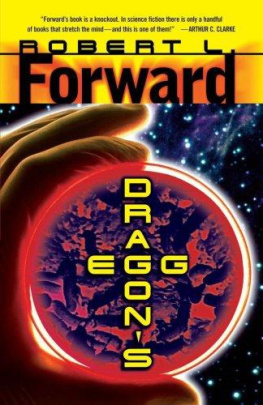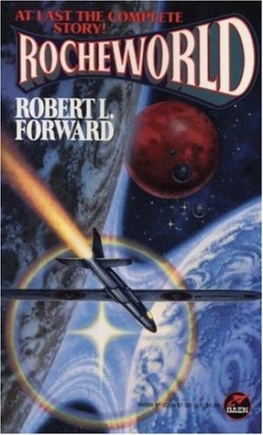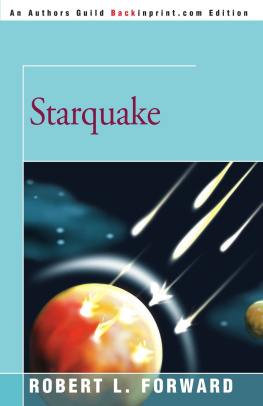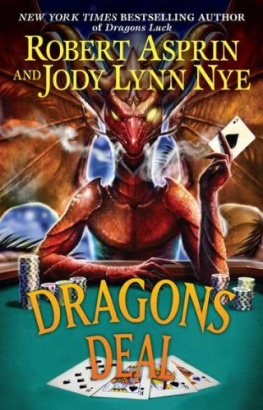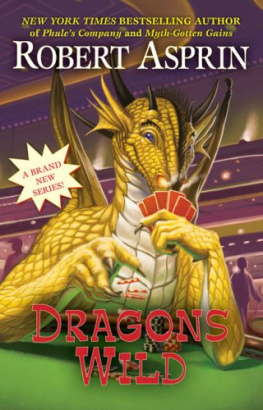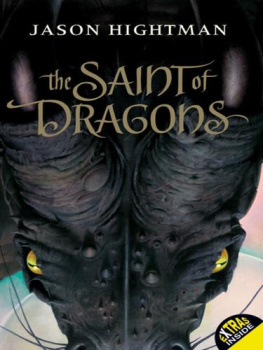DRAGONS EGG was a neutron star, an incredibly dense sphere only twenty kilometers in diameter, with a surface gravity sixty-seven billion times that of Earth. No human could ever land on such a star. Only by the most advanced technology could science even study it.
Yet on that impossible world, researchers detect intelligent life: the cheela, aliens who live so fast that one of our hours is the equivalent of more than a hundred years to them. The cheela struggle from savagery to science in a span of daysand the astronauts orbiting above Dragon's Egg are by turn observers, then teachers, then friends...
Then a monstrous STARQUAKE rocks Dragon's Egg, decimating the cheela. On the surface, the few survivors fight to stay alive. Meanwhile, high above the neutron star, their human friends face a dreadful choice: return to Earth and let this alien race risk extinction, or remain to help...and certainly die in the attempt!
Critics acclaimed DRAGON'S EGG and STARQUAKE:
"Forward has impeccable scientific credentials, and ... big, original, speculative ideas."
The WashingtonPost
"Knockout ... One of a handful of books that stretch the mind."
Arthur C. Clarke
"Exemplary hard SF... There is no more dazzling practitioner of the form."
Locus
"A tour-de-force meticulous creation of an unbelievably alien race ..."
Isaac Asimov's Science Fiction Magazine
"This is one for the real science-fiction fan." Frank Herbert, author of Dune
"Never in the history of science fiction, I think, have so many of the most exciting contemporary scientific concepts played a role in a book."
Frank D. Drake, Director
National Astronomy and Ionosphere Center
"DRAGON'S EGG is superb. I couldn't have written it; it required too much real physics."
Larry Niven
"Forward's plot, both simple and grand, is the whole history of an alien civilization and the effect contact with us has on it. Those who crave real science along with their fiction will be mightily pleased with this mind-expanding and engrossing example of SF in its purest form."
Publishers Weekly
"Dazzling, beautifully worked-out scientific extrapolations
... An adventure that's sure to please fans of 'hard' SF."
Kirkus Reviews
Also by Robert L. Forward
Published by Del Rey Books:
MARTIAN RAINBOW
DRAGON'SEGG
Robert L Forward
DEL REY
A Del Rey Book
BALLANTINE BOOKS NEW YORK
Sale of this book without a front cover may be unauthorized. If this book is coverless, it may have been reported to the publisher as "unsold or destroyed" and neither the author nor the publisher may have received payment for it.
A Del Rey Book Published by Ballantine Books
Dragon's Egg Copyright 1980 by Dr. Robert L. Forward Starquake Copyright 1985 by Robert L. Forward
All rights reserved under International and Pan-American Copyright Conventions. Published in the United States of America by Ballantine Books, a division of Random House, Inc., New York , and simultaneously in Canada by Random House of Canada Limited, Toronto . Starquake was originally published by Ballantine Books in 1985. Dragon's Egg was originally published by Ballantine Books in 1980.
ISBN 0-345-38898-4
Manufactured in the United States of America
First Edition: August 1994
10 987654321
CONTENTS
Dragon's Egg 1
Starquake 273
DRAGON'S EGG
Thanks to:
Frank Drakehe invented them.
Mary Loisshe named them.
Larry Nivenhe gave them something to do.
and David K. Lynch, Mark Zimmermann, Carlton Caves, Hans Moravec, David Swenson, Freeman Dyson, and Dan Alderson, who helped me in several technical areas. My special thanks to Lester del Rey, who took what was practically a pedantic scientific paper and helped me to turn it into something interesting to read, and to George Smith and the Hughes Aircraft Company for giving me the intellectual environment that made it feasible.
Contents
Prologue
TIME: 500,000 B.C.
Buu lay in his leafy arbor nest and looked up at the stars in the dark sky. The hairy young humanoid should have been asleep, but his curiosity kept him awake. A half-million years in the future that twinkling of curiosity would have led his mind out into the universe to explore the mathematical mysteries of relativity. Now ...
Buu continued to stare at the bright stars above him. One speck suddenly flared brighter. Frightenedbut fascinated Buu watched the growing point of intense light until it went behind a dense tree branch. He would be able to see it again if he went to the nearby clearing. He clambered down from his nestinto the striped coils of Kaa.
Kaa did not enjoy his kill for long. Things were difficult for him in a world with two suns. The new sun was tiny and white, while the old one was big and yellow. The new sun circled constantly overhead. It never set, and he could no longer catch things at night. Kaa diedalong with other hunters who could not change their habits fast enough.
For a year the new light shone from above, searing the sky. Then it slowly grew dimmer and dimmer, and within a few years night returned to the northern hemisphere of Earth.
Fifty light-years away from the Solar System there was once a binary star system. One star was in its normal yellow-white phase, but the other had bloated up until it turned into a red giant, swallowing the planets around it. The nuclear fuel for the red giant ran out just fifty years before Buu's curiosity got the better of him. With its fusion-bomb center turned off, the energy the star needed to hold itself up against its self-gravitation
was no longer available, and the star collapsed. At the center, the in-falling matter became denser under the terrific gravitational pressure until it turned almost completely into neutrons. The neutrons pressed closer and closer until they were packed radius to radius.
Under these cramped conditions, the strong nuclear repulsion forces were finally able to resist the gravitational pressure. The inward rush of matter was quickly reversed, and the outward motion turned into an incandescent shock wave that traveled upward through the outer shell of the red giant. At the surface, the shock wave blew off the outer layers of the star in a supernova explosion that released more energy in one hour than the star had released in the previous million years.
Beneath the expanding cloud of blazing plasma, the core of the red giant had changed. What had once been a large, red, slowly rotating balloon 200 times bigger than the Sun was now a tiny, white-hot twenty-kilometer ball of ultra-dense neutrons, spinning at over 1000 revolutions a second.
The original magnetic field of the star had stayed trapped in the highly conductive collapsing cloud of star stuff. Like the sunspot pattern on the original star, the magnetic field was not aligned with the spin axis of the neutron star, but was sticking out at an odd angle. One magnetic pole was very concentrated and a little above the equator. The other (really a group of poles) was on the opposite side of the star. Part of its complex pattern was below the equator, but most of it was in the northern hemisphere.
The almost solid trillion-gauss magnetic fields reaching out from the two magnetic poles of the rapidly spinning star tore into the glowing debris remaining from the supernova explosion. Driven by the rapid rotation of the ultra-dense sphere, the magnetic fields threw the massive clouds of ions away from the star in scintillating gouts. Like a Fourth-of-July pinwheel on the loose, the neutron star accelerated off to the south, directly toward its nearby neighbor Sol, the magnetic propeller leaving a glowing wake streaming out behind. After a short while, the plasma density became thinner and the rocket action stopped, but by then the star had achieved a respectable proper motion of thirty kilometers per second or one light-year every 10,000 years, a tiny wanderer jaywalking across the star lanes of the Galaxy.
Next page
